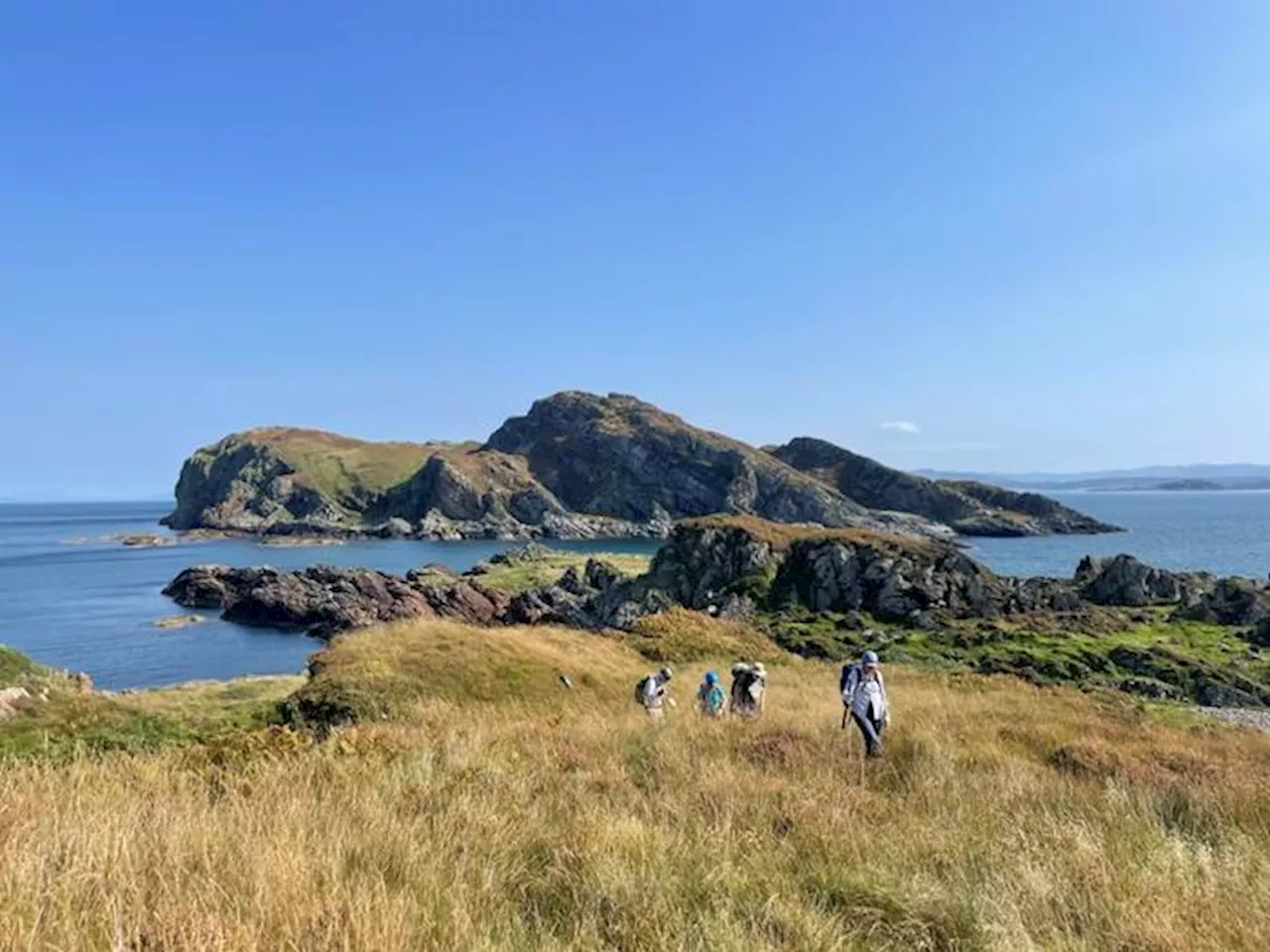Researchers examine rocks from before and after a major glaciation event called Snowball Earth to describe an evolutionary transition.
A view of Garbh Eileach, the largest island in the Garvellach island chain where the gradational transition into snowball Earth is recorded. The years between 662 million years and 700 million years ago — just before and after glaciers left a half-mile thick rock layer — were mysterious.
Now, researchers have examined a rock feature showing what life on the planet was like — both before the freeze and after the subsequent thaw. TheMany rock formations created by that glaciation event — for instance in North America and Namibia — don’t show the “before and after” transition. However, researchers located one exposed outcrop of a rock formation that spanned Ireland and Scotland.
Underneath the rocks laid down during the glaciation, the scientists found an earlier layer of rocks over 200 feet thick. These carbonate rocks formed in tropical waters and recorded a tropical marine environment that teemed with bacterial life that gradually tapered off as the planet cooled.“The retreat of the ice would have been catastrophic,” Shields said. “Life had been used to tens of millions of years of deep freeze.
United States Latest News, United States Headlines
Similar News:You can also read news stories similar to this one that we have collected from other news sources.
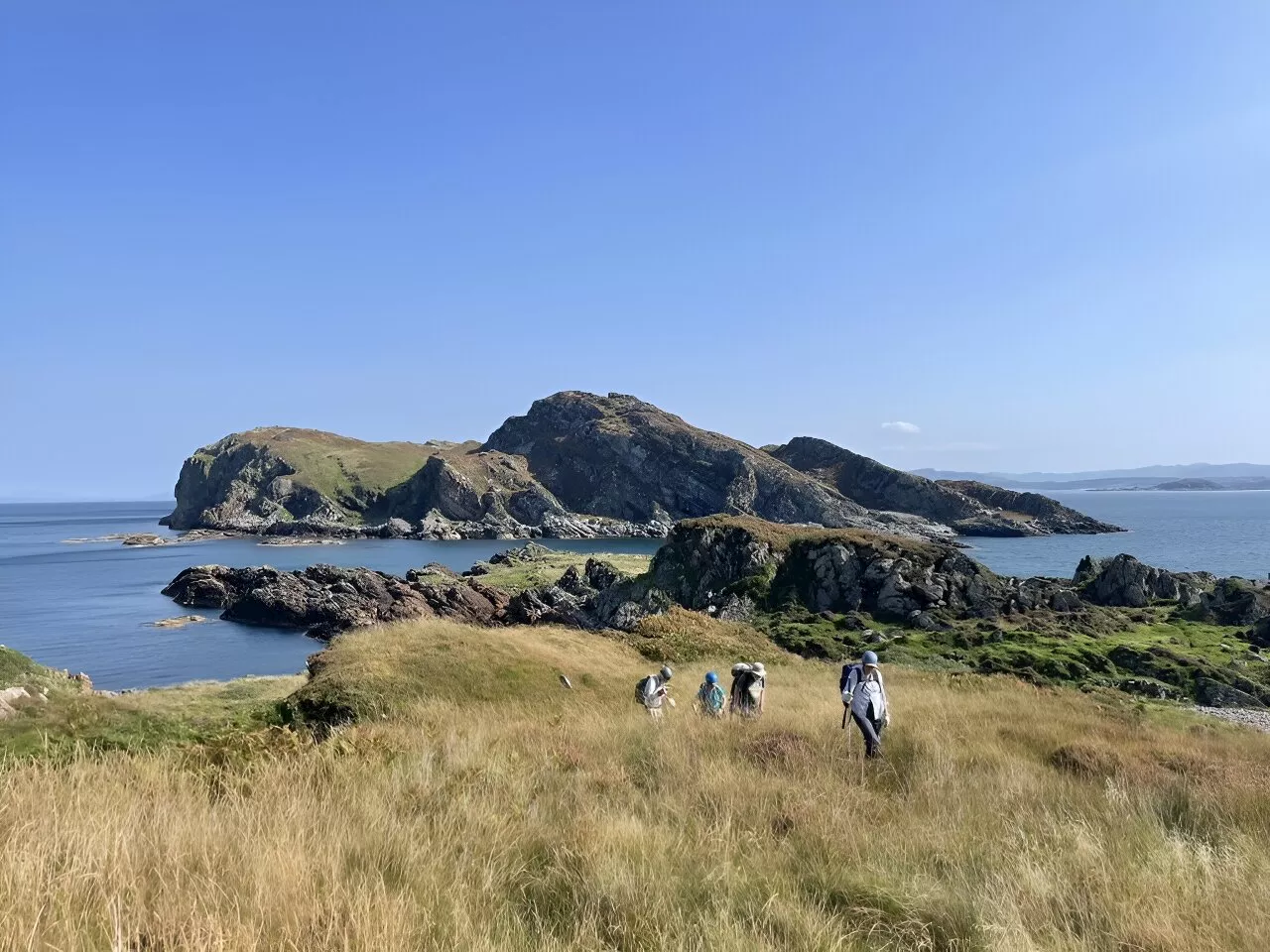 Scottish and Irish rocks confirmed as rare record of 'snowball Earth'A rock formation spanning Ireland and Scotland may be the world's most complete record of 'snowball Earth,' a crucial moment in planetary history when the globe was covered in ice, finds a new study led by UCL (University College London) researchers.
Scottish and Irish rocks confirmed as rare record of 'snowball Earth'A rock formation spanning Ireland and Scotland may be the world's most complete record of 'snowball Earth,' a crucial moment in planetary history when the globe was covered in ice, finds a new study led by UCL (University College London) researchers.
Read more »
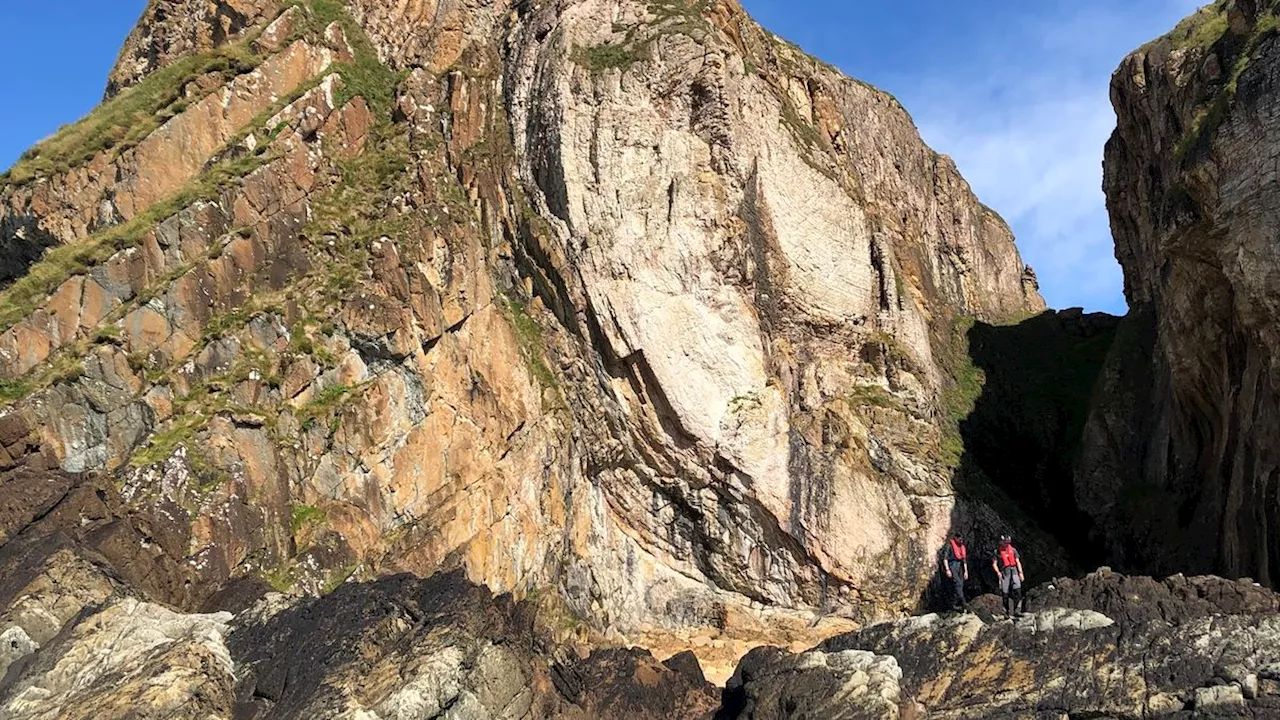 'Golden spike' showing the moment Earth turned into a giant snowball discovered in ancient Scottish rocksHannah Osborne is the planet Earth and animals editor at Live Science. Prior to Live Science, she worked for several years at Newsweek as the science editor. Before this she was science editor at International Business Times U.K. Hannah holds a master's in journalism from Goldsmith's, University of London.
'Golden spike' showing the moment Earth turned into a giant snowball discovered in ancient Scottish rocksHannah Osborne is the planet Earth and animals editor at Live Science. Prior to Live Science, she worked for several years at Newsweek as the science editor. Before this she was science editor at International Business Times U.K. Hannah holds a master's in journalism from Goldsmith's, University of London.
Read more »
 Earth Sets Record for Hottest Day Ever Recorded, Smashes Record the Next DayScience and Technology News and Videos
Earth Sets Record for Hottest Day Ever Recorded, Smashes Record the Next DayScience and Technology News and Videos
Read more »
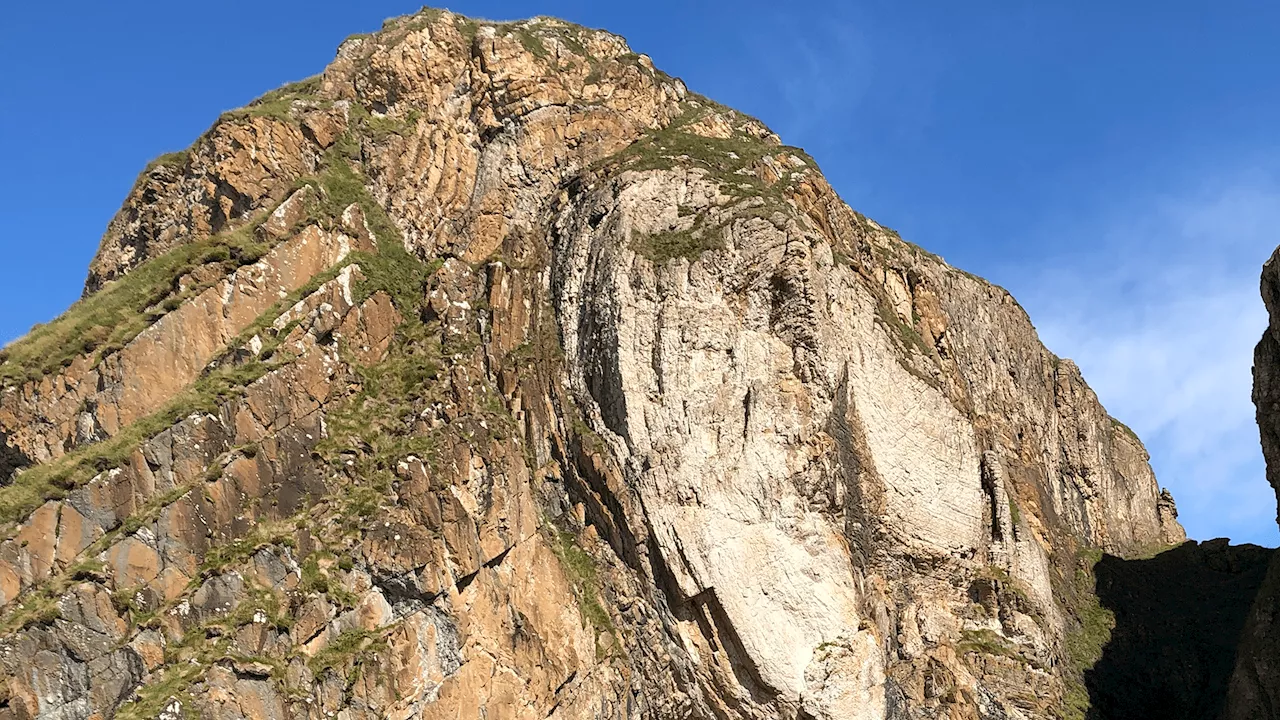 Geologists find solid evidence of ancient ‘snowball Earth’Laura is a science news writer, covering a wide variety of subjects, but she is particularly fascinated by all things aquatic, paleontology, nanotechnology, and exploring how science influences daily life. Laura is a proud former resident of the New Jersey shore, a competitive swimmer, and a fierce defender of the Oxford comma.
Geologists find solid evidence of ancient ‘snowball Earth’Laura is a science news writer, covering a wide variety of subjects, but she is particularly fascinated by all things aquatic, paleontology, nanotechnology, and exploring how science influences daily life. Laura is a proud former resident of the New Jersey shore, a competitive swimmer, and a fierce defender of the Oxford comma.
Read more »
 Advanced chelators offer efficient and eco-friendly rare earth element recoveryThe world is going to need a lot of weird metals in the coming years, according to chemistry professor. But he isn't talking about lithium, cobalt or even beryllium. He's interested in dysprosium, which is so hidden in the periodic table that you'd be forgiven for thinking he made it up.
Advanced chelators offer efficient and eco-friendly rare earth element recoveryThe world is going to need a lot of weird metals in the coming years, according to chemistry professor. But he isn't talking about lithium, cobalt or even beryllium. He's interested in dysprosium, which is so hidden in the periodic table that you'd be forgiven for thinking he made it up.
Read more »
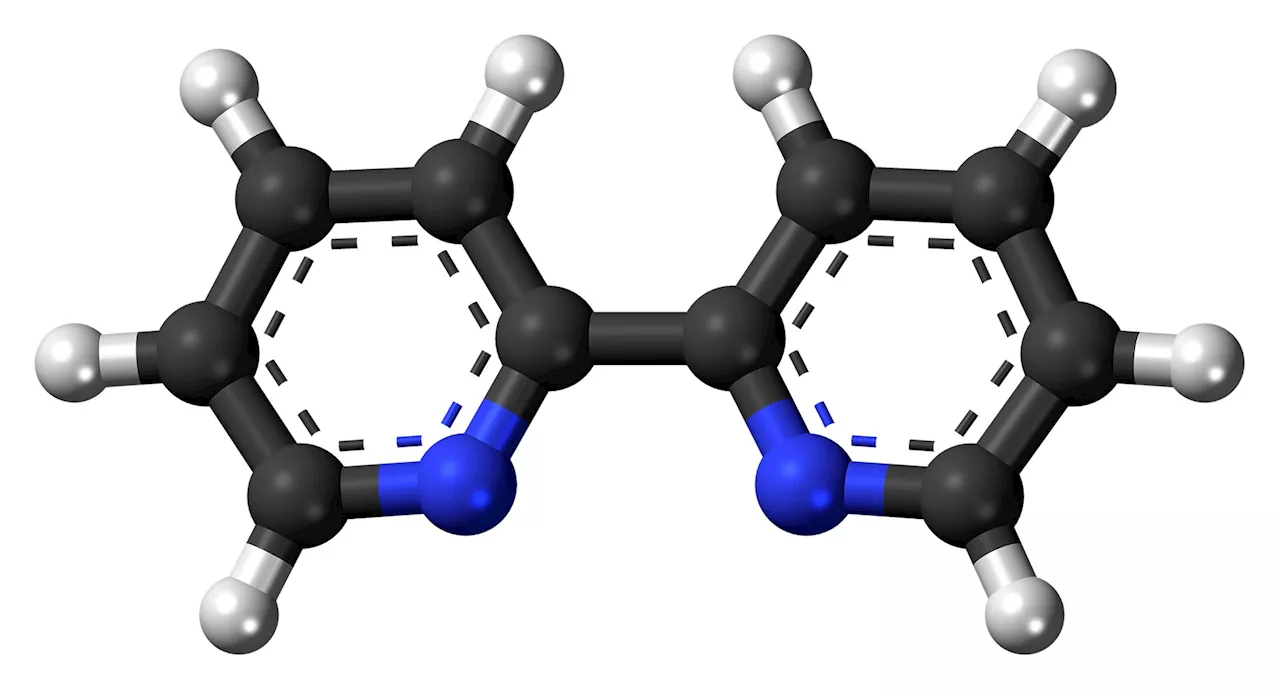 Advanced chelators offer efficient and eco-friendly rare earth element recoveryThe world is going to need a lot of weird metals in the coming years, according to chemistry professor Justin Wilson at UC Santa Barbara. But he isn't talking about lithium, cobalt or even beryllium. Wilson's interested in dysprosium, which is so hidden in the periodic table that you'd be forgiven for thinking he made it up.
Advanced chelators offer efficient and eco-friendly rare earth element recoveryThe world is going to need a lot of weird metals in the coming years, according to chemistry professor Justin Wilson at UC Santa Barbara. But he isn't talking about lithium, cobalt or even beryllium. Wilson's interested in dysprosium, which is so hidden in the periodic table that you'd be forgiven for thinking he made it up.
Read more »
